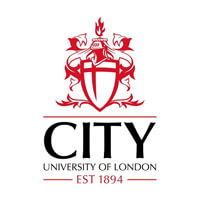fees waived
Computer Science with Cyber Security, MSci (Hons)
City, University of London, United Kingdom
Subject ranking
UK / THE 2025 30th
UK / CUG 2024 37th
UK / Guardian 2025 38th
Costs
food & rentS$25.1K / year
Entry requirements
Scholarships
Limited quantity
Information
Code
Intakes
Website (External)
Programmes
Information
Duration
2029
This four-year integrated Master’s degree in Computer Science with Cyber Security equips students with essential skills for a thriving career in the cybersecurity sector. You will build a strong foundation in technical computing, including programming, systems architecture, and algorithms, before advancing to specialized topics such as cryptography, digital forensics, and network security. Practical training in ethical hacking and system auditing prepares you for high-demand roles in an increasingly digital world. The program also emphasizes professional development through optional placements with companies like Accenture and IBM, enhancing employability and meeting academic requirements for Chartered Engineer status.In your final year, you’ll engage in advanced modules and an individual project, studying alongside renowned researchers. Assessment balances written exams, coursework, and practical evaluations, with opportunities for electives to tailor your studies. The course is accredited by BCS, The Chartered Institute for IT, ensuring industry recognition and boosting career prospects.
During this four-year Computer Science with Cyber Security MSci course you will learn to solve real-world cyber security challenges, using programming, problem-solving and analytical skills. Year 1 Study our common first year for all our computer science students, learning six core topics including operating systems, web development and Java. -Introduction to Algorithms (15 Credits) -Mathematics for Computing (15 Credits) -Systems Architecture (15 Credits) -Programming in Java (30 Credits) -Databases (15 Credits) -Operating Systems (15 Credits) -Computer Science, Ethics & Society (15 credits) Year 2 Deepen your knowledge of computer science with core modules such as C++ and data structures. Boost your professional skills with a team project or a work-based project. -Data Structures and Algorithms (15 credits) -Language Processors (15 credits) -Computer Networks (15 credits) -Object-Oriented Analysis and Design (15 credits) -Professional Development in IT (15 credits) -Team Project (30 credits) -Programming in C++ (15 credits) Year 3 Study specialist modules such as digital forensics. Choose elective modules to tailor the degree to your interests. -Network Security (15 Credits) -Digital Forensics (15 Credits) -Information Security Fundamentals (15 Credits) -Cyber Crime and Sociotechnical Risk (15 Credits) -Games Technology (15 Credits) -Advanced Databases (15 Credits) -Computer Graphics (15 Credits) -Theory of Computation (15 Credits) -Advanced Games Technology (15 Credits) -Professional Experience and Career Development (30 Credits) -Data Visualization (15 Credits) -Digital Signal Processing and Audio Programming (15 Credits) -Project Management (15 credits) -Advanced Programming: Concurrency (15 Credits) -Functional Programming (15 Credits) -Cloud Computing (15 Credits) -Computer Vision (15 Credits) -Introduction to Artificial Intelligence (15 Credits) -Programming and Mathematics for A (15 Credits) -Agents and Multi Agents Systems (15 Credits) -User Centred Systems Design (15 Credits) -Semantic Web Technologies and Knowledge Graphs (15 credits) Year 4 Develop in-depth professional expertise to prepare you for your career in cyber security. Study core modules and elective modules in topics such as cryptography and cyber crime. Undertake an individual project to showcase your skills. -Advanced Algorithms and Data Structures (15 Credits) -Cryptography (15 Credits) -Security Auditing and Certification (15 Credits) -Individual Project (45 Credits) -User-centred Systems Design (15 credits) -Advanced Databases (15 Credits) -Project Management (15 credits) -Computer Graphics (15 Credits) -Digital Signal Processing and Audio Programming (15 Credits) -Data Visualization (15 Credits) -Advanced Programming: Concurrency (15 credits) -Cloud Computing (15 credits) -Computer Vision (15 credits) -Introduction to Artificial Intelligence (15 credits) -Programming and Mathematics for Artificial Intelligence (15 credits) -Computational Cognitive Systems (15 Credits) -Agents and Multi-Agent Systems (15 Credits) -Advanced Games Technology (15 Credits) Students have the opportunity to follow two placement routes: a one year placement or the Professional Pathway scheme. The one year placement can be undertaken following successful completion of year 2. Students can join the Professional Pathway scheme after successful completion of year 1 (early entry) or after successful completion of year 2 or a one year placement (late entry).

